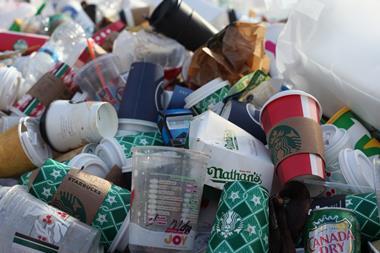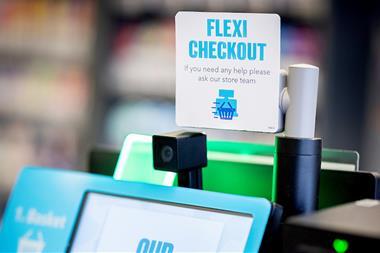Returns and the country
With the countdown to the general election on, Helen Gregory interviewed the men who hope to run MAFF.
Colin Breed might not have ruffled too many feathers in his current role, but his previous post as spokesman for consumer affairs made him few friends in the supermarket industry, mainly due to the report he commissioned and published in 1998, Checking out the Supermarkets. It covers issues such as: The supply chain an abuse of power? and Crisis in the towns.
"I hope it helped in the compilation of the original OFT report," says Breed, "but I think the subsequent Competition Commission finding was a total whitewash and the biggest waste of money. The new suppliers' code which has just been published is awful, too. It is written with the supermarkets in mind and in their favour. There's no chance of anyone agreeing to the terms."
Breed advocates the appointment of a retail regulator who, he says, could monitor supermarkets' activities. "You need someone who can balance and promote an agreement of fair terms of trade between supermarkets and the suppliers. Someone who can arbitrate when there are disputes a kind of honest broker.
"Supermarkets must recognise they can't continue to operate in the way they have. The pendulum has swung too far in their favour. We can't have the power of supermarkets' purchasing departments bearing down on the producers so much that we jeopardise the ability to have safe food."
Breed, who lives in Cornwall, has twice been mayor of his home town of Saltash, has been an MP for four years, and in his current role for 18 months, following a 21 year career in banking where he lent cash to agricultural businesses.
He is passionate about supporting the more underrepresented sectors of the industry and convinced the way forward is to get "safe, sustainable and ethically produced food" which he believes is entirely possible in this country. "Consumer choice isn't about going to Tesco or Sainsbury, it should be between a viable local market providing a vibrant outlet for small farms and the supermarket so we have a real alternative."
Breed believes that if nothing is done, many local high streets face decimation which would spark the need for a regulator. "I don't care about supermarkets making huge profits, but others should have a chance."
To help them, Breed advocates an end to the Uniform Business Rate, so that smaller businesses fall into a different category and pay less. He also wants to help small family firms. "You need to recognise they want to continue having access to local outlets and supermarkets giving them a platform is a good start, although some restrict you from selling to other people if you strike deals with them, which is totally wrong."
The down-to-earth MP advocates having a department of agriculture and rural affairs instead of the standard agriculture department, a move Breed says would make the two areas more co-ordinated.
He also believes integrated farm management is a viable alternative to current practices.
And although he believes organic food is credible, he says some is being bought more as a fashion statement, without understanding what it means.
"We're losing basic knowledge about where our food comes from and the Liberal Democrats believe education has a part to play in this. People need to reconnect with issues such as seasonality."
He says, however, that if there were a wholesale movement into organics, the premium farmers receive would disappear and they would be back at the original situation "where costs are too high and margins too low. It would be nonsensical to get oversupply."
To that end, he adds, the party would advocate more cash for farmers to convert to organic but not that much more.
GM foods, meanwhile, are not off the agenda for the party, as Breed says it understands their potential. "There are advantages in a scientific study, although there are potential dangers for the environment. Field trials are needed and a moratorium on commercially grown crops until the research has been fully undertaken."
He is convinced that the public needs to be re-educated about the value of food. "You don't go out and buy the cheapest car, so why should you do it for food?"
He supports the FSA and says he is heartened by its work so far, although he thinks it still has a long way to go before getting the public's total trust.
On the foot and mouth outbreak, Breed points out that the industry has been transporting animals around the country for years. It is the frequency of the trade which has caused problems, and this needs to be addressed. "The frequency incurs expenses, such as transportation costs and dealers' commission. And then the farmers don't always get properly rewarded for all their hard work through the price of the animal.
"A more sustainable agreement needs to be made so that farmers are rewarded through market prices."
Vaccination, he says, should be adopted in special cases.
"We have got to put far more research into animal diseases, which needs to be conducted on a worldwide basis, along with studies into the environment and labelling which need to be conducted Europe-wide."
{{COVER FEATURE }}
Close menu
- Home
- Retail & Wholesale
-
Products & Suppliers
- Back to parent navigation item
- Products & Suppliers
-
Product Categories:
- Back to parent navigation item
- Product Categories:
- Alcoholic drinks
- Bakery
- Cereals & breakfast
- Cheese
- Chicken & poultry
- Chocolate
- Confectionery
- Crisps, nuts & snacks
- Dairy
- Fish
- Fresh produce
- Frozen
- Household
- Meat
- Own Label
- Sauces & condiments
- Seasonal
- Soft drinks
- Vaping
- Vegan & plant-based
- World foods
- Suppliers
- People
- Reports & Data
-
Topics A-Z
- Back to parent navigation item
- Topics A-Z
-
Popular topics:
- Back to parent navigation item
- Popular topics:
- Cost of living crisis
- Crime
- Deposit Return Schemes
- Finance
- Government & Regulation
- Health
- Inflation
- Loyalty
- Marketing
- Mergers & Acquisitions
- New Product Development
- Sourcing
- Supply chain
- Sustainability & environment
- Technology
- Ultra Processed Foods
- Vaping
- A-Z all topics
- Content by type:
- Events
- Ask iA (beta)
- Subscribe now
Sign in to comment on this article
Not logged in before? Register for FREE guest access today.
You will be able to:
- Read more stories
- Receive daily newsletters
- Comment on stories
Advert














No comments yet